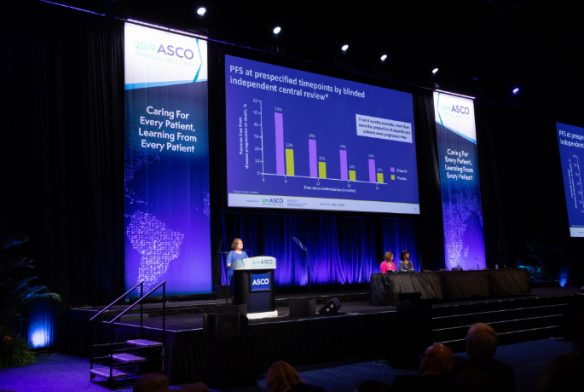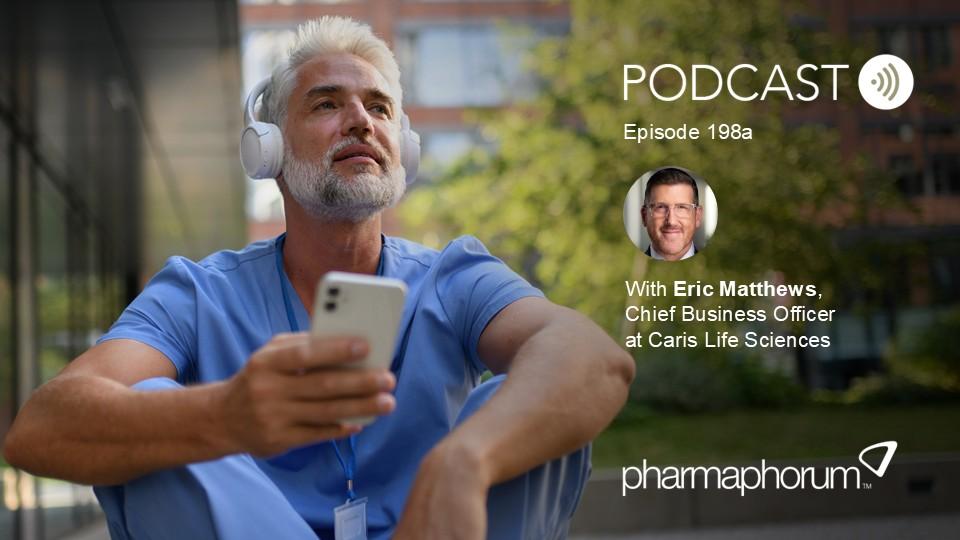ASCO ’22 preview: Putting patients first

For the first time since 2019, the American Society of Clinical Oncology (ASCO) annual meeting will be an in-person conference. We’re excited to re-connect with fellow oncology and clinical care professionals from across the globe to learn from one another and discuss key advances in cancer care and research.
From innovations in cancer therapeutics to developments in genetic testing and biomarkers to the role of data analytics and technologies in oncology trials, insightful conversations can create invaluable intersections between trial sponsors, researchers, service partners and patients, breaking down information silos to promote advances in patient-driven drug development.
More than ever, patients and their advocates are ready to play an integral role in oncology healthcare. The industry can best make a genuine impact in clinical outcomes when the patient’s needs and experiences are integrated into drug development. ASCO ’22 provides the perfect backdrop to dive into ways we can collectively drive patient-centric oncology research and development (R&D). Highlighted below are a few of the key patient-focused discussions we look forward to at ASCO.
Equitable care for all
Our industry hopes trial participation provides answers to the compelling questions in oncology care, while offering patients innovative treatment pathways. However, we’re falling short on our mission to ensure that the population recruited into trials sufficiently represents all those affected by cancer in the real world. The disproportionate impact of COVID-19 on racial and ethnic minorities allowed the need for health equity and clinical research as a care option for all to take centre spotlight. It also highlighted the individualised day-to-day burdens on patients and caregivers that impact access to care and life-saving treatments. Often, trial participation may require resources which are not always available to patients from lower socioeconomic groups, remote geographies or certain ethnicities. This contributes to a disparity in participation and may impact the ability to apply the results of oncology clinical trials to clinical practice.ASCO attendees have the chance to sit in or actively participate in several meaningful sessions focused on equitable cancer care, including discussions on increasing trial participation and interest among African-American populations and removing barriers to treatment access.
To better address barriers to oncology trial participation, the industry needs to shift how we’ve approached the issue by first identifying various burdens, then incorporating solutions directly into trial design accordingly.
During the pandemic, decentralised trial (DCT) solutions helped improve patient engagement and increased trial efficiencies. Scalable DCT solutions (e.g., telehealth, wearable devices, at-home lab collection and direct-to-patient (DTP) treatment delivery) helped reduce certain patient burdens related to access and open participation to a more geographically, and hence a potentially more racially and ethnically diverse patient population. Although the DCT approach requires participants to assume certain responsibilities typically owned by sites, by including strategies to drive patient understanding and compliance, these burdens can be offset and oncology clinical research can flourish in the new paradigm.
Applying COVID-19 key learnings
During the early days of the pandemic, the industry appropriately focused on how to make sure critical drug development continued despite site closures, regional shutdowns and increased patient safety concerns. Now, it is important that the oncology community endeavors to understand which innovative solutions worked well during COVID-19 and to tailor those strategies for future clinical trials for patients with cancer.
For example, telehealth helped ensure patients in oncology trials were able to continue participating from home and accessing much-needed investigational treatments, while limiting exposure to COVID-19 by reducing on-site visits for complex medical procedures. For those with cancer, this can greatly impact their quality of life and potentially impact survival. Therefore, when utilising telehealth, one must account for impacts on supportive care. If patients don’t physically visit with their provider as often, how should we ensure they are getting the same level of support, and what adjustments in trial design and protocol should be made to ensure quality care? At ASCO, stakeholders are expected to discuss what conducting an oncology trial after COVID-19 may entail, touching on supportive care differences, like patient isolation, that can impact trial outcomes.
Integrating new drugs into cancer care
Over the past decade, there were nearly 170 new treatments in immuno-oncology, next-generation biotherapeutics, treatments for rare cancers and more. We’ve also seen an increase in centres and trial sites globally that extend the availability of these treatments to patients. Taking chimeric antigen receptor (CAR) T-cell therapies for example, there are a growing number of centres in the U.S. and elsewhere worldwide offering the treatment. Those in clinical care at ASCO will share insights on the real world use of these therapies and variations per patient population, region, and more.
Whether treatments for more common forms of cancer (e.g., breast cancer, non-small cell lung cancer, prostate cancer) or rare cancers, the uptake of use for an approved treatment can vary greatly from country-to-country. Differences in reimbursement pricing and much more can impact treatment use per country, which in turn, can influence where future trials are conducted and related outcomes. Securing real world data insights can help inform key decisions around future drug development and trial planning, which will be discussed at ASCO too.
ASCO has always offered those of us in the complex field of oncology R&D a tremendous opportunity to celebrate the collective progress the industry has made in ensuring high-quality care to those most at need. By embracing innovation and staying agile in approaches, we can help make sure the greatest number of patients are able to capitalise on breakthrough therapies, our shared goal in cancer care.
Here’s to all the insightful discussions we will have at ASCO to better meet patient needs!
About the authors
 As chief medical officer, Dr. James Kyle Bryan is responsible for strategic global medical and scientific leadership for IQVIA Biotech, leading the Medical, Safety, Feasibility, Oncology Strategy and Global Strategic Delivery teams.
As chief medical officer, Dr. James Kyle Bryan is responsible for strategic global medical and scientific leadership for IQVIA Biotech, leading the Medical, Safety, Feasibility, Oncology Strategy and Global Strategic Delivery teams.
Focused on drug discovery and development in the biotechnology and pharmaceutical industries for more than 25 years, Kyle offers a unique perspective on navigating medical and safety challenges and needs within clinical trials. Board-certified in haematology and medical oncology, Kyle also remains actively engaged in clinical care as a clinical faculty member at the University of Washington Medical Center, allowing him to better understand the current needs and wants of patients to factor into his guidance for trial sponsors.
 Head of the Hematology/Oncology Center of Excellence at IQVIA, Dr. Jeffrey Keefer is a board-certified paediatric haematologist and oncologist with 12 years of academic faculty experience in the Johns Hopkins University School of Medicine’s Division of Pediatric Hematology. Prior to his current role, he led the Pediatric and Rare Diseases Center of Excellence at IQVIA.
Head of the Hematology/Oncology Center of Excellence at IQVIA, Dr. Jeffrey Keefer is a board-certified paediatric haematologist and oncologist with 12 years of academic faculty experience in the Johns Hopkins University School of Medicine’s Division of Pediatric Hematology. Prior to his current role, he led the Pediatric and Rare Diseases Center of Excellence at IQVIA.
Dr. Keefer received a BA in Biology from the University of Virginia and MD and Ph.D. degrees from Vanderbilt University School of Medicine. He completed a residency in Paediatrics and served one year as Chief Resident at the Johns Hopkins Hospital, where he held a Fellowship in Pediatric Hematology and Oncology.













